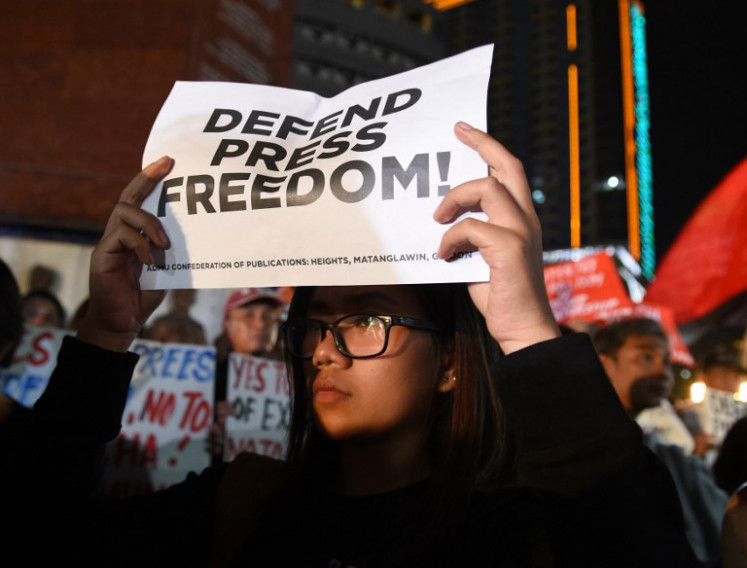State budget inefficiencies lessened: Finance Ministry
As tax collection this year is likely to be challenging, the Finance Ministry has taken austerity measures that will see less taxpayer money go to exorbitant spending by public officials
Change Size

A
s tax collection this year is likely to be challenging, the Finance Ministry has taken austerity measures that will see less taxpayer money go to exorbitant spending by public officials.
A technical assessment called a “spending review” conducted in January and December by the ministry and other agencies is to help avert potential inefficiencies this year worth Rp 8.7 trillion (US$652.3 million).
The figure is smaller than the Rp 50 trillion the ministry saved by avoiding some inefficiencies last year.
According to the ministry, the inefficiencies mostly involved official travel and accommodations, meetings and honoraria.
The government is undertaking a strict review of all spending this year in a bid to avoid widening a budget deficit that is already Rp 330.2 trillion, 2.41 percent of gross domestic product (GDP).
During their spending review, the ministry also found that over-budgeting in ministries and institutions often hovered around 4 to 6 percent each year, even though their average spending realization only reached about 95 percent of target.
Through the spending review, the ministry measured the spending performance of each ministry and institution through 11 indicators, including efficiency and compliance to regulations.
Speaking to hundreds of officials from various ministries and institutions on Tuesday, Finance Minister Sri Mulyani Indrawati called for stringent budget planning as inefficiency would affect the fiscal ability to achieve economic goals.
“How did you make your [budget] planning? Did you just arrange everything without careful calculation and expect the Finance Ministry and the National Development Planning Board [Bappenas] to approve it? This is not how things work,” she said.
Spending inefficiencies were also found in the complicated official accountability reports (LPJ) submitted by ministry and institution officials, which suggested many leaks.
The problem with the LPJ prompted President Joko “Jokowi” Widodo last year to reform the procedure so that the reports would reflect accountability without putting too much of a burden on civil servants by making them work overtime.
Prudent fiscal management has remained an issue during the first two years of Jokowi’s term as the government has set what some consider unrealistically high tax targets considering the weak collection measures. This has caused sizeable revenue shortfalls and posed a threat to the development of many infrastructure projects.
The government fears aggressive spending will mismatch its tax revenue target following last year’s disappointing results — in which tax collection only reached 83.4 percent of the Rp 1.53 quadrillion target.
The government aims to collect Rp 1.75 quadrillion in revenues this year, up by 14.3 percent compared to last year’s achievement.
When Sri Mulyani took office in late July, she embarked on stern austerity measures and reduced expenditures by Rp 137 trillion to tackle a revenue shortfall of Rp 219 trillion.
Between Jan. 1 and Feb. 20, the budget deficit was Rp 22 trillion, equal to 0.16 percent of GDP, Finance Ministry’s data shows. That was smaller than the deficit of Rp 50.6 trillion, 0.41 percent of the GDP, recorded in the same period last year.
The lower deficit during the period was triggered by a 4.81 percent year-on-year (yoy) increase in state revenues to Rp 145.4 trillion as of Feb. 20, while government spending decreased by 10.97 percent to Rp 168.6 trillion in the same period.
With such lower government spending, Bank Indonesia (BI) predicted economic growth in the first quarter would be lower than the 5.05 percent it previously projected.









